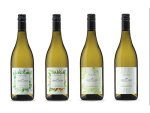A NEW giant Asian free trade negotiation was launched last month – at the end of the East Asia Summit in Cambodia – with a goal to complete the deal by the end of 2015.
New Zealand is part of both trade talks and Prime Minister John Key attended both. The Regional Comprehensive Economic Partnership (RCEP) agreement is being driven by Asean (the Association of Southeast Asian Nations), which hosted the East Asia summit.
The 16 countries involved in RCEP are the 10 Asean countries; plus China, Japan, Korea, India, Australia and New Zealand. It's expected to be a comprehensive economic partnership becoming a modern, high-quality agreement aimed at transforming the region into an integrated market of at least three billion people with a combined GDP of $US19.78 trillion – based on 2011 figures.
RCEP is a strategy aimed at maintaining regional growth by ensuring the markets of participating countries remain open and competitive. The agreement will contribute to ASEAN economic integration, equitable economic development and strengthening economic cooperation between ASEAN member states, as well as between ASEAN and its partners.
At the same time, the official launching of RCEP will strengthen ASEAN centrality in regional economic integration as the United States-led Trans-Pacific Partnership gradually progresses toward its scheduled conclusion at the end of 2013.
The RCEP is also expected to include economic and technical cooperation elements that would allow all parties, regardless of their level of development, to maximise the opportunities made available by deeper and broader economic engagements.
Critics noted a combined market force such the RCEP will become the world's biggest regional free trade area (FTA) upon its completion. The potential FTA will certainly help maintain regional competitiveness and promote global economic growth. However, with some destabilising factors present in the region and respective concerns of involved countries, barriers still lie ahead of comprehensive economic cooperation in East Asia.
Asia is already a major market for New Zealand exporters. Dairy products, meat, wool, logs and timber products dominate our goods exports to the region.
But we face a continuing challenge to expand the range and depth of our markets in the region. And then to lift the value of our goods and services exports, which have been impacted by the high kiwi dollar.
However this free trade agreement can only mean good news for New Zealand farmers long-term, as it eases the access to the world fastest growing region. There is a lot of politics to go under the bridge before the RCEP comes to fruition and there could likely be hiccups and controversy.
However, we have already seen the impact of the Chinese free trade agreement. If this is anything to go by the demand for New Zealand's agricultural products – all shapes and sizes – is about to heat up.
Of course, there are other outcomes that will impact overall returns for agricultural producers. But nothing has a better long-term economic impact than a rise in demand for one's goods. All products from meat to wine will also be given a boost as Asia's demand for New Zealand goods continues to grow.
2012 has been a challenging year for most concerned, but the prospect of this huge free trade agreement is a nice Christmas present for the agricultural sector and will be one to watch heading into 2013. - Francis Wolfgram
Francis Wolfgram, BA (Econ) is an independent financial analyst with 15 years' experience in the financial markets, working for some of the world's largest financial institutions. This email address is being protected from spambots. You need JavaScript enabled to view it.










